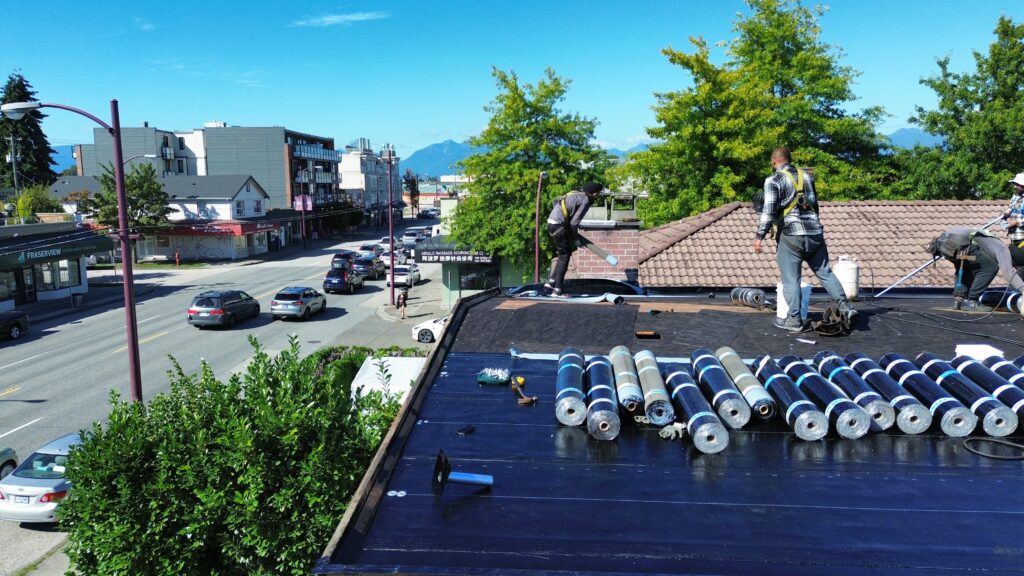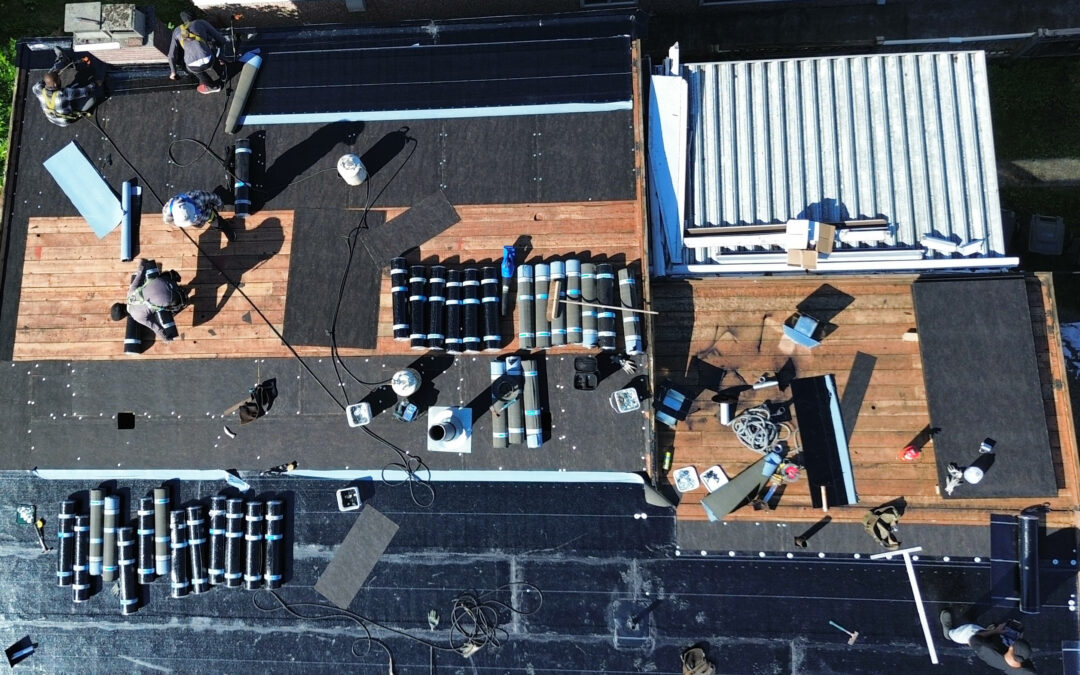Flat roofs have become a favorite for many property owners in Vancouver, especially for modern homes and commercial spaces. Their clean, minimalist design and efficient use of space are just some of the reasons why they’re so popular. But here’s the catch: choosing the right roof material isn’t just about looks—it’s about long-term durability and weather performance.
In Vancouver, where the city gets over 160 rainy days a year and an average of 1,100 millimeters of rainfall, roofing materials need to stand up to the challenge. Moisture resistance and energy efficiency are key, particularly in a climate like this. The city’s green initiatives also encourage eco-friendly solutions, with Vancouver targeting a 55% reduction in carbon pollution from buildings by 2030.
In this blog, we’ll break down the best materials for flat roofs that can handle Vancouver’s climate while keeping your property protected and energy-efficient. Whether you’re upgrading a commercial building or a residential property, you’ll find valuable insights here.
Why Material Choice Matters for Flat Roofs
The material you choose for flat roofs plays a big role in how long your roof will last and how well it performs. Unlike sloped roofs, flat roofs don’t shed water as easily, making them more vulnerable to leaks and damage. That’s why using the right roof material is essential to protect your home or business.
In cities like Richmond, where the weather can bring heavy rainfall during the fall and winter, the roof needs to handle constant exposure to moisture. Materials like flat roof membranes are designed to create a watertight seal, reducing the risk of leaks.
Beyond weather, energy efficiency is another factor to consider. A good roof material can help regulate indoor temperatures, saving you money on heating and cooling bills. For instance, reflective materials like TPO can lower energy costs by bouncing heat away, a great option for eco-conscious property owners.
Choosing the right material also affects maintenance and repair costs. High-quality materials might cost more upfront, but they save you money in the long run by reducing the need for frequent repairs. This is especially important for flat roofing in Richmond, where a durable, low-maintenance solution is key to withstanding the local climate.
Ultimately, selecting the best materials for flat roofs isn’t just about aesthetics; it’s about making a smart investment for the future. Whether it’s a commercial property or a family home, the right choice can ensure your roof stays strong for years to come.
7 Best Materials for Flat Roofs
Finding the right material for flat roofs is essential for long-lasting protection and energy efficiency. Here’s a breakdown of the top materials to consider, especially for homes and businesses in Richmond.
1. EPDM Rubber Membrane
EPDM is a reliable choice if you’re looking for durability at an affordable cost. This rubber membrane is lightweight, easy to install, and can handle tough weather. It’s a great option for flat roofs that need simple yet effective protection.
2. TPO (Thermoplastic Polyolefin)
TPO is known for being energy-efficient and reflective, making it ideal for reducing cooling costs in warmer months. It’s durable and resistant to UV rays, which means it can handle Richmond’s seasonal weather changes.
3. PVC (Polyvinyl Chloride)
PVC is one of the most durable options for flat roofing. It’s flexible, waterproof, and fire-resistant, making it a strong contender for long-term use. Although it costs a bit more upfront, its durability can save you money over time.
4. Modified Bitumen
Modified bitumen is a tried-and-true option. It’s affordable and easy to apply, usually in layers for added strength. While it’s not the most modern material, it gets the job done, especially if you’re working with a tighter budget.
5. Built-Up Roofing (BUR)
BUR, made from layers of tar and gravel, has been around for decades. It’s tough and highly waterproof, which is why it’s often used on commercial properties. However, it’s heavier than other options, so it’s better suited for buildings with strong structural support.
6. Spray-On Roofing
This option involves spraying polyurethane foam directly onto the surface, creating a seamless protective layer. It’s great for waterproofing and insulation but does require occasional maintenance to keep it in good shape.
7. Metal Roofing
Metal roofing is an excellent choice for Richmond’s wet climate. It’s durable, modern-looking, and can last up to 50 years with minimal maintenance. While it’s one of the pricier options, the longevity makes it worth the investment.
Each material offers unique benefits, so consider your budget and maintenance preferences when deciding. With the right material, your flat roof can stand up to Richmond’s weather while keeping your property safe and energy-efficient.
Factors to Consider When Choosing a Flat Roof Material
Choosing the right material for flat roofs isn’t just about cost or looks—it’s about making a decision that fits your building’s needs and Richmond’s unique climate. Here are the key factors to keep in mind:
1. Weather in Richmond
Richmond experiences plenty of rainy days, which means water resistance is crucial for any flat roof membrane. Look for materials that provide a strong seal against moisture, like TPO or EPDM, to prevent leaks and long-term damage. Ponding water is another common issue with flat roofs that can lead to structural problems if not addressed. Learn more about why ponding water on your flat roof matters and how to handle it.
2. Durability and Longevity
Not all materials are built to last the same amount of time. If you’re looking for something that can handle Richmond’s mix of rain and occasional sunshine, durable options like PVC or metal are excellent choices. These materials might cost more upfront but can save you from frequent repairs.
3. Energy Efficiency
With rising energy costs, energy-efficient roofing materials can make a big difference. Reflective options like TPO or metal roofs help reduce cooling costs by bouncing heat away. This is especially important during Richmond’s warmer months.
4. Budget vs. Maintenance Costs
While modified bitumen or built-up roofing (BUR) may seem cost-effective at first, they might require more frequent maintenance. Investing in higher-quality roof material like PVC could save you money in the long run by reducing upkeep costs.
5. Environmental Impact
If you’re looking for sustainable solutions, consider eco-friendly materials like TPO, which are recyclable and energy-efficient. Richmond is known for its green initiatives, so choosing materials that align with these values can be a smart move.
6. Building Type and Use
For commercial buildings, durability and minimal maintenance are key, making metal or BUR great options. For residential properties, lighter and easier-to-install materials like EPDM might be more practical.
By keeping these factors in mind, you can find a material that not only suits your flat roof but also fits your budget and needs. The right choice ensures your roof stays strong and efficient for years, even in Richmond’s challenging weather.
Professional Installation for Flat Roofs in Richmond
No matter how durable or high-quality the material is, the performance of flat roofs heavily depends on professional installation. A poorly installed roof can lead to leaks, energy loss, and frequent repairs—costing you more in the long run.
In Richmond, with its rainy climate, ensuring proper installation is especially important. Skilled roofers know how to handle flat roof membranes and other materials, making sure they are sealed tightly and aligned correctly. This is essential for preventing water pooling, a common issue with flat roofing systems.
Hiring a trusted professional also means access to expert advice. They can help you choose the best roof material for your property, considering Richmond’s weather and your budget. Plus, professionals have the tools and experience to get the job done safely and efficiently, avoiding common DIY mistakes.
When selecting a contractor for flat roofing in Richmond, check for certifications, reviews, and warranties. A reliable roofer will offer guarantees for their work, giving you peace of mind that your roof will stand up to the elements.
Investing in professional installation might seem like an added expense, but it’s the best way to protect your property and ensure your flat roof lasts for years to come.

CONCLUSION
Choosing the right material for flat roofs is one of the most important decisions you can make for your home or business. From durable options like PVC and metal to energy-efficient materials like TPO, there’s something for every budget and need. Richmond’s rainy climate makes it even more crucial to pick a roof material that can handle moisture and stand the test of time.
Remember, professional installation is just as important as the material itself. Working with experts in flat roofing in Richmond ensures your roof is installed correctly and built to last. It’s an investment in the safety, energy efficiency, and longevity of your property.
Now that you know the top materials and factors to consider, you’re ready to make an informed choice. Whether you’re planning a new roof or replacing an old one, reach out to trusted roofing professionals in Richmond to get started. With the right material and expert help, your flat roof can provide reliable protection for years to come.

